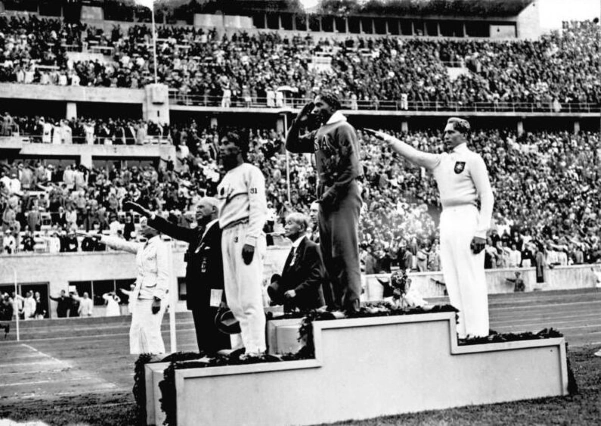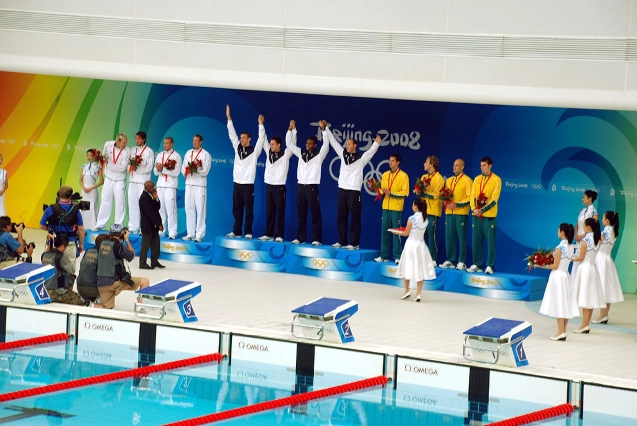BLOG
The Olympics: part one


Kerry Pogue
April 1, 2025 • 6 minutes
Category:
Elusive 10 Series
Welcome to the third article in our blog series, In search of the elusive 10, where we illuminate high-yielding topics, facts and trivia in each Quizified category to maximise your quiz performance for the least amount of effort.
In our previous article, I outlined six areas to focus on in the sport category. With its global appeal, rich culture and diverse content, the Olympics emerged as the first of these six focus areas. In this article, I’ll pinpoint the historical moments, host cities and standout performances you should commit to memory to give you an outsized advantage when faced with questions on this theme.
Mastering the Olympics category is complicated by the fact it covers both the summer and winter Olympics games, and their respective Paralympic games. However, we’ll largely focus on the Summer Olympic Games, owing to its superior global audience and participation, which makes it a more likely source of questions for quizmasters. To keep things digestible, this article will be split into three parts.
Some ‘need-to-know’ winter and paralympic facts will be presented in a second article and will form the icing on the Olympic cake.
Part 1: The Backdrop, and The Essential 20%: notable Olympic games.
The Backdrop
Let’s set the scene with some basic information about the Olympics:
- The Olympic Games are named after Olympia, the ancient Greek sanctuary where the ancient games were held from 776 BCE in honour of Greek God Zeus.
- The modern summer Olympics, organized by the International Olympic Committee (IOC), were first introduced in 1896 by Frenchman Baron Pierre de Coubertin, and held in Athens, Greece as a tribute to the Games’ origins.
- Both Summer and Winter Olympics are typically held in even-numbered years. Until 1992, they were held in the same year, every four years. From 1994 they were staggered to alternate every two years, starting with the 1994 Winter Olympics in Lillehammer, Norway, and the 1996 Summer Olympics held in Atlanta, USA.
- Since Seoul ’88, the Paralympic Games have been held in the same location shortly after the corresponding Olympic Games.
- The most recent Summer Olympics were held in Paris, France in 2024.
- The next Summer Olympics are due to be held in Los Angeles, USA in 2028 and then Brisbane, Australia in 2032.
- Los Angeles 2028 will feature 35 sports, while 204 nations competed at Paris 2024.
The Essential 20%
As I alluded to in our previous article, questions about the Olympics typically focus on hosts, standout athletes and historical moments, so this is where we’ll concentrate our efforts. By addressing these areas simultaneously, we can present the facts as stories with context, which, as we’ll explore in future articles, helps us organise and retrieve our memories.
With that said, we’ll begin with a review of the most significant summer Olympic Games, noteworthy for their innovations, athletic performances and political context. The good news is that by focusing on just 5 of the 30 summer Olympic games held since 1896, we can cover a disproportionately large number of significant events likely to be quizzed.
Continuing to play the percentages, you’ll notice that our focus will tend to be on the disciplines with the most events: athletics (48 events), swimming (35), cycling (22) and gymnastics (18).
We’ll fill in some blanks later in this article to ensure anything else significant is covered.
The Nazi Propaganda Games – Berlin 1936
- Adolf Hitler and the Nazi regime used them as a propaganda tool to showcase the supposed superiority of the Aryan race and to promote the strength and unity of Nazi Germany. Elaborate pageantry, banners, and symbols of the Third Reich dominated the event, creating a striking political backdrop.
- Jesse Owens, an African-American athlete, famously won four gold medals (100m, 200m, long jump, and 4x100m relay), challenging Nazi racial superiority claims.
- Thirteen-year-old Marjorie Gestring of the U.S. won the gold medal in springboard diving. She remains the youngest female gold medallist in the history of the Summer Olympic Games.
- The Games introduced innovations like the torch relay, and were the first to be broadcast on television.

Jesse Owens on the podium during a medal ceremony, Berlin Olympics 1936.
The High-Altitude Games - Mexico City 1968
- Held at an altitude of 2,240 meters above sea level, the conditions impacted athletic performance, particularly in endurance events.
- Famous for two iconic moments: Tommie Smith and John Carlos' Black Power salute during the medal ceremony in protest against racial inequality which led to their expulsion from the games, and Bob Beamon's (USA) astonishing record-breaking long jump 8.90 meters, which stood as a record for nearly 23 years.
- The Games were the first to feature the use of an all-weather synthetic track for athletics events, replacing traditional cinder tracks.
- Dick Fosbury (USA) introduced the revolutionary Fosbury Flop technique in the high jump, winning gold and changing the event forever.
The Tragic Games – Munich 1972
- These Games aimed to present a peaceful image of Germany post-World War II but were overshadowed by a terrorist attack in which 11 members of the Israeli Olympic team were killed by Palestinian terrorist group Black September.
- Mark Spitz (USA) won an unprecedented seven gold medals in swimming, setting world records in every event.
- Gymnast Olga Korbut (USSR), known as the "Sparrow from Minsk," captivated audiences with her charisma and innovation.
The Harmony Games - Seoul 1988
- Largely marked the end of boycotts that had plagued the 1976, 1980 and 1984 Olympics.
- Canadian sprinter Ben Johnson initially won the 100m sprint in record-breaking time, but he was stripped of his gold medal for doping, making this one of the most high-profile scandals in Olympic history.
- American swimmer Matt Biondi won seven medals (five golds), solidifying his place as one of the sport’s greats.
- Florence Griffith-Joyner ("Flo-Jo") dazzled in athletics, winning three gold medals and setting unbroken records in the 100m and 200m sprints.
- Tennis made its return as an Olympic sport after a 64-year absence, with Steffi Graf winning gold to complete her Golden Slam.
- Canadian sailor Larry Lemieux abandoned his medal-contending position in the Finn class to rescue two capsized competitors from Singapore, earning the prestigious Pierre de Coubertin Medal for his extraordinary display of sportsmanship and Olympic spirit.
The Games of Records – Beijing 2008
- Swimmer Michael Phelps (USA) bettered Mark Spitz’s achievement at the 1972 Munich Games by claiming eight golds, breaking 7 world records and 1 Olympic record in the process.
- Usain Bolt (Jamaica) won gold and set new world records in the 100m, 200m, and 4 x 100m relay.
- Ethiopia’s Kenenisa Bekele broke the Olympic record in the 10,000m and claimed the 5,000m gold in an outstanding long-distance double. His compatriot Tirunesh Dibaba matched the feat, becoming the first woman to do so.
- British swimmer Rebecca Adlington won two gold medals in freestyle events, breaking the 800m freestyle world record that had stood since 1989.

Michael Phelps being awarded one of his eight golds won at Beijing 2008. Credit: Jmex60.
That’s already 5 significant games, 18 significant athletes and 31 records under our belts. We’ve also covered 3 major political events and touched on a fourth – the political boycotts of late 70s to mid-80s. I’d encourage you to look up the athletes and put faces to names, as it’ll help with recall.
Other notable games
As promised, here are some additional Games to remember, that didn’t quite make our top five:
- The 1948 Olympics in London, held shortly after WWII, were nicknamed the Austerity Games and were notable for their cost cutting measures amid economic challenges.
- Moscow ’80 is known as The Boycotted Games. Marked by a significant boycott led by the United States in protest against the Soviet invasion of Afghanistan. The Soviet Union and Eastern Bloc retaliated at Los Angeles ’84.
- Atlanta ’96 was known as the Centennial Games, celebrating 100 years of the modern Olympics. It’s remembered for the bombing at Centennial Olympic Park, which killed two and injured 110 more.
- Known as The Pandemic Games, Tokyo 2020 was rescheduled for 2021 amid the global COVID pandemic. Athletes competed in near-empty stadiums.
Join us for part 2 next week, where we'll focus on more standout athletes and performances, and Olympics media.